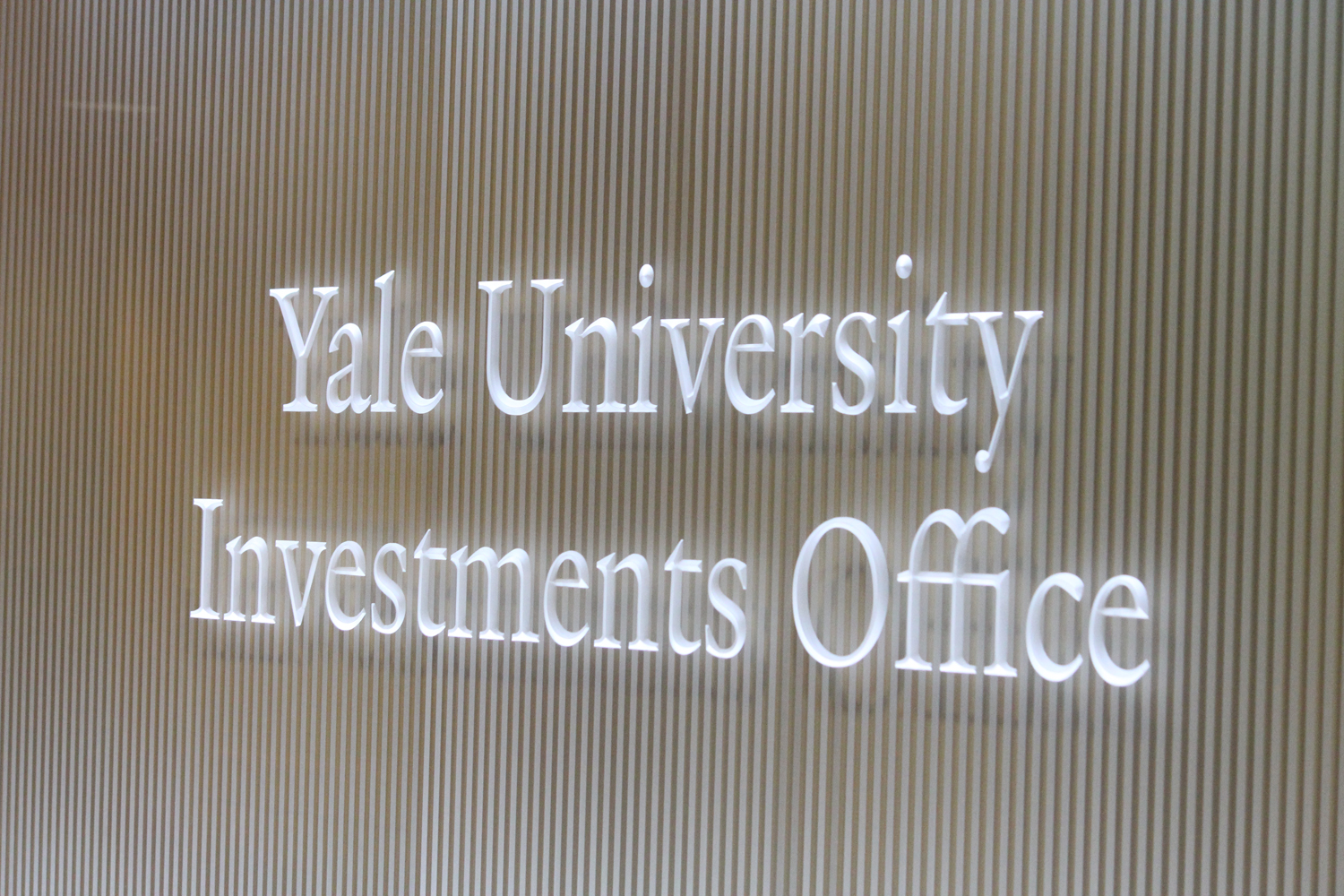
The Yale College Council announced on Sunday that it has joined the Endowment Justice Coalition in support of the activist group’s demands for transparent and ethical investment practices at the University.
During a meeting on Jan. 25, the YCC Senate unanimously passed a resolution proposing the group at large join the coalition. According to the coalition’s website, its two main demands are that Yale divest from fossil fuels and cancel its holdings in Puerto Rican debt.
“The YCC has a unique position with the University,” YCC President Kahlil Greene ‘21 wrote in an email to the News. “We have access to some of the highest levels of administrators at Yale and we can use this privilege to voice the coalition’s case to campus decision makers.”
The email announcing the decision stated that the YCC will act as “formal partners” with students in the coalition to “[tackle] the climate crisis through divestment-related activism.” Greene added in his statement that the “ethos” and “legitimacy” of the YCC will be “extremely important” for lending its influence in future collaborations, such as potential partnerships with politicians or celebrities. According to Greene, this “unique platform” will be used to ensure that the coalition’s goals are met.
The Yale Investments Office does not typically comment on how it invests its $30 billion endowment. In an email to the News last fall, University President Peter Salovey said that while the University does not favor divestment, it asks outside endowment managers to avoid investing in companies that disregard the social and economic costs of climate change and fail to take action on reducing greenhouse gas emissions. Salovey underscored that the University has the will and capacity to make a meaningful difference in the fight to preserve the planet.
Student activists from the Endowment Justice Coalition, however, have organized demonstrations calling for divestment in the form of sit-ins at the Investments Office, a campus-wide class walkout last fall and a protest at the annual Yale-Harvard football game. Activists and the University have long remained at odds, with the students unable to confirm claims about specific holdings in the endowment and Yale unwilling to disclose its investments. The most recent financial documents cited by activists that detail parts of Yale’s endowment are current as of Sept. 30. Updated information past that point is not publicly available.
Greene said that supporting student activism is a priority for the current YCC administration. Still, he noted the work the YCC has already done in this area, citing its public statement supporting the halftime protest at the Yale-Harvard game.
“Now, though, we are standing side-by-side with students to ensure the safety of our planet and protection of our most vulnerable communities,” Greene said.
YCC senator and coalition member Abey Philip ‘22 told the News that this decision was based on the council’s “[acknowledgement] that climate change is real” and that “real action” can help the issue. Philip echoed Green, noting that the YCC can be a “helpful partner” and add a “layer of legitimacy” to the coalition.
In particular, Philip said that the YCC’s access to the administration will further the coalition’s goals. Given that the YCC is comprised of elected representatives of the student body, he added that the Yale administration will “have to acknowledge” the YCC’s support of the coalition and demands for “substantive action.”
“I believe that the YCC can provide the coalition with the necessary legitimacy to interact with higher members of the administration from Peter Salovey to the board of trustees,” Philip said. “The YCC can now push for the coalition’s agenda in boardrooms they were previously denied access to.”
Still, it remains unclear how much leverage YCC’s statement will give to the endowment activists. Though the widely-publicized protests at the Harvard-Yale game last fall inspired a string of similar demonstrations at colleges around the nation, the Yale Investments Office has not responded publicly.
While the resolution was passed unanimously, not all YCC senators were equally enthusiastic about the decision.
YCC Senator Andrew Song ’22 was one of the few members who raised concerns regarding the resolution during the Senate meeting. He told the News that the coalition representatives’ emphasis that they will “escalate their actions, if necessary, to receive attention” from Yale “concerned him.”
While Song originally planned to vote against the resolution “as it(s) sole dissenter,” he eventually voted in favor of it since he “wanted it to at least be a unanimous Senate decision.” As a Pierson representative, he said that he was aware that “a majority of Pierson’s student body would have wanted” him to vote in favor, which also influenced his final vote.
“If the YCC are to act as a bridge between the administration and student groups like the coalition, we have to navigate this relationship by not explicitly positioning ourselves on one side,” Song said.
According to Song, he is “optimistic” that students will not interpret this collaboration as “an endorsement of breaking undergraduate regulations” — which is his “biggest fear.”
Still, YCC Senator Saket Malhotra ‘23 wrote in an email to the News that this decision would have a positive impact on the first-year class.
Malhotra noted that campus activism tends to dissolve as students graduate — an issue that could be resolved by this partnership. According to Malhotra, the YCC’s involvement with the coalition could give future classes a more immediate awareness and engagement with the divestment movement.
“The first year class is always looking for new ways to get involved on campus, and with YCC’s influence, the culture of environmental activism will remain strong for years to come,” Malhotra said.
Nineteen YCC senators were present and voted in favor of the resolution.
Alayna Lee | alayna.lee@yale.edu







